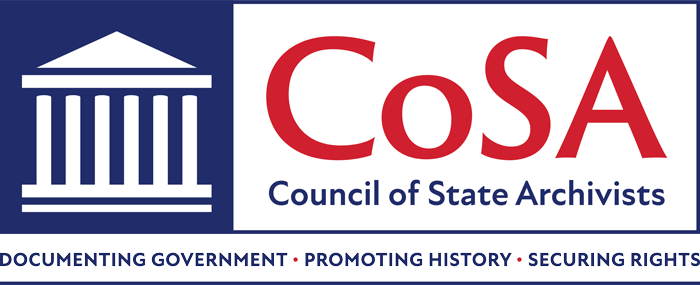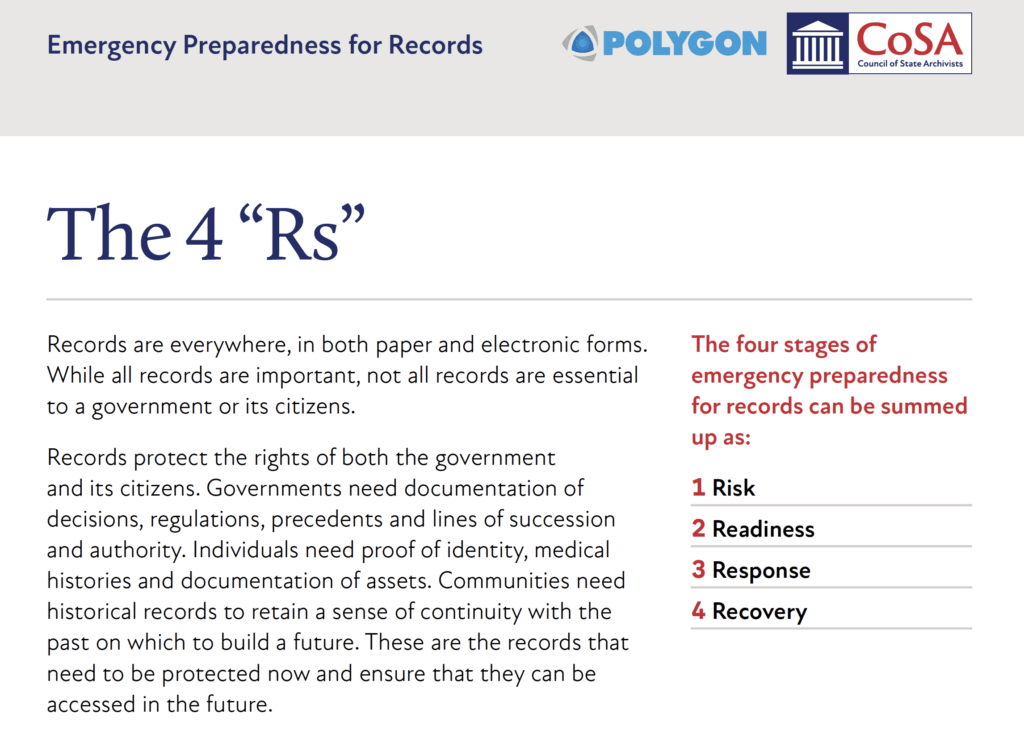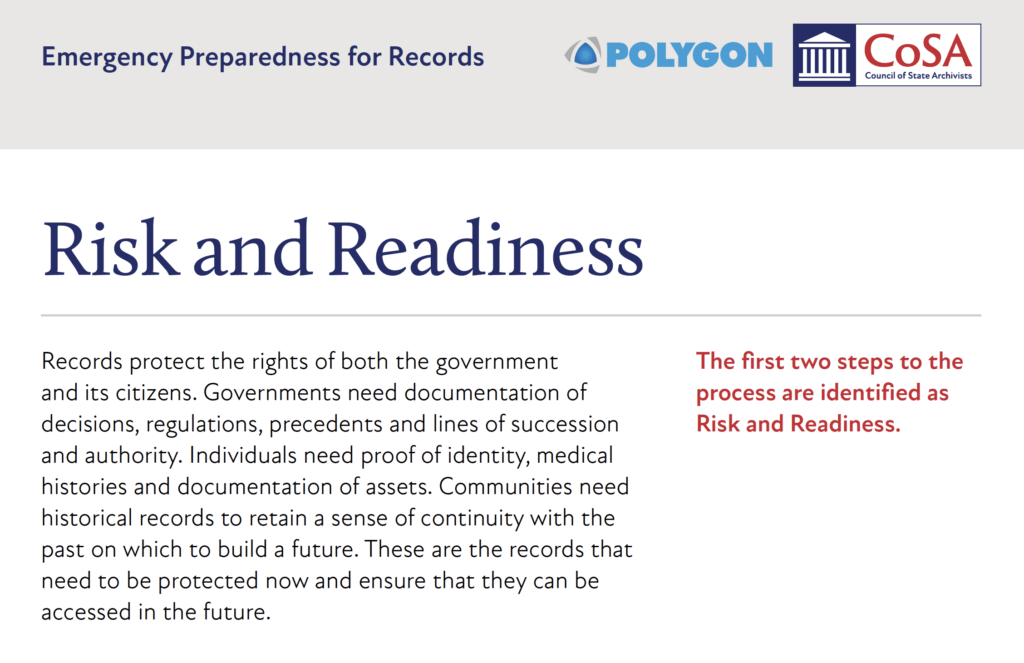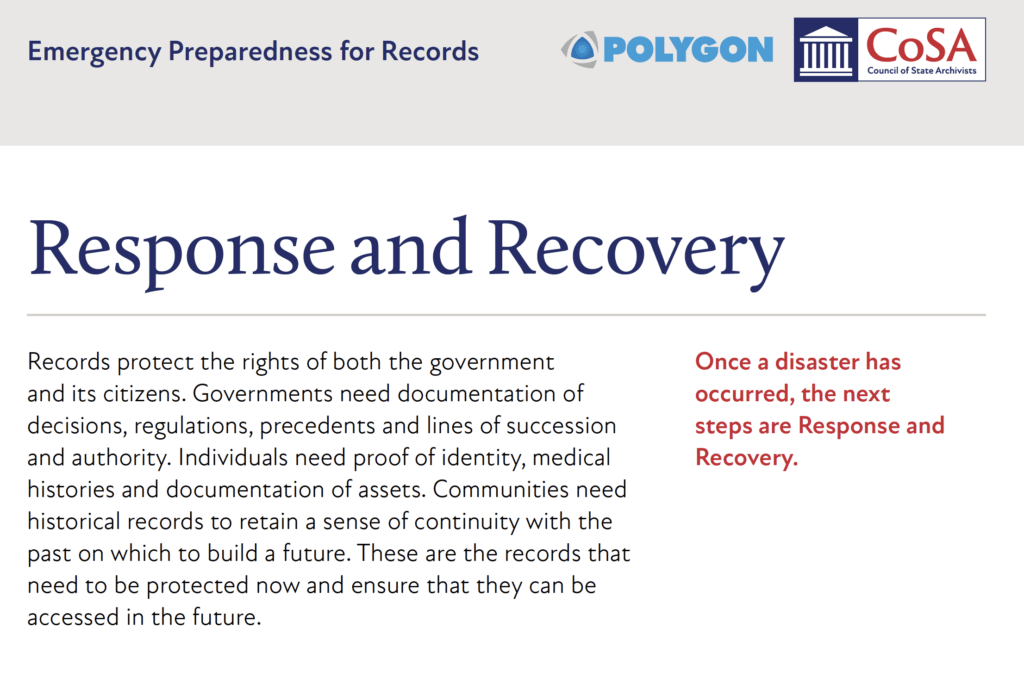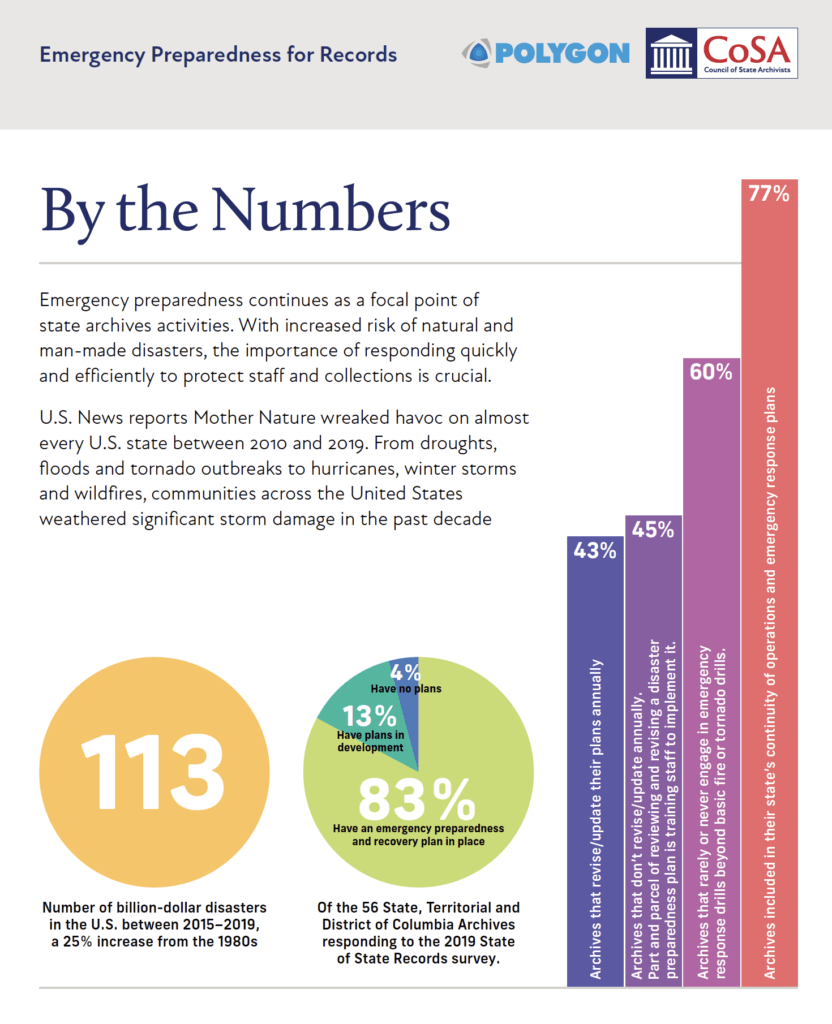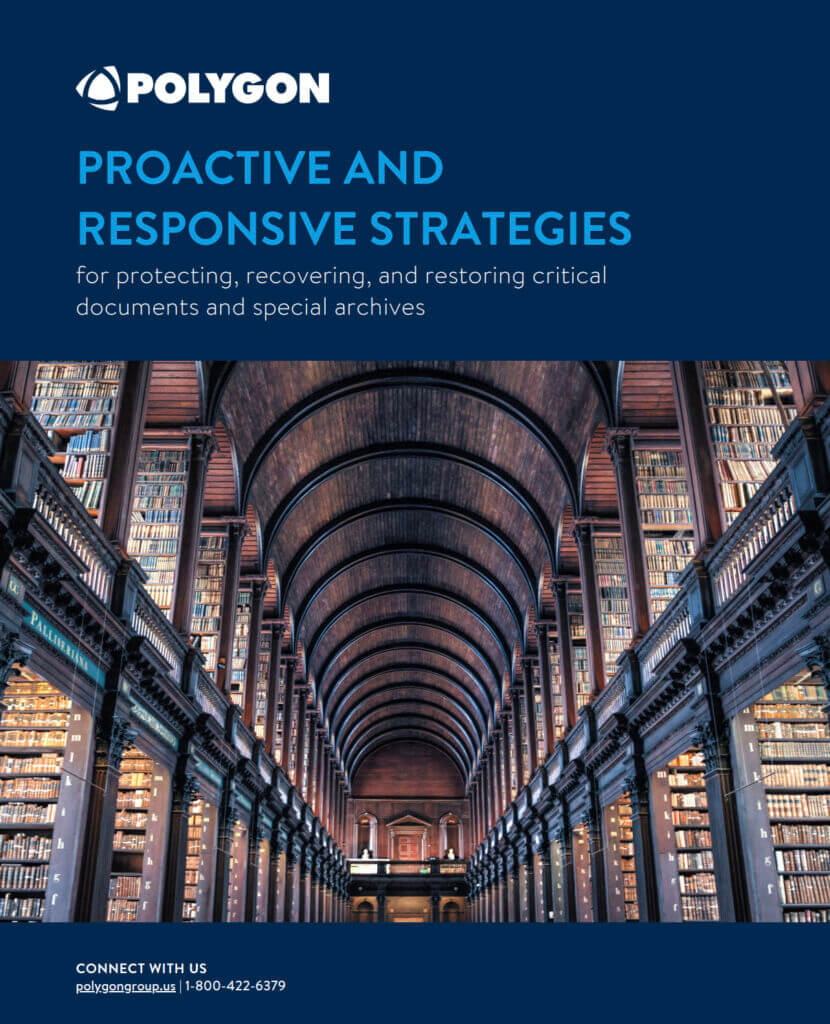Overview
Every institution holds records that are essential to government operations, public accountability, and community history. When disasters strike - whether floods, fires, system failures, or other emergencies - these records are at risk. Effective preparedness ensures that state and territorial archives can protect critical information, recover quickly, and continue providing access to the public.
CoSA supports archives nationwide with practical tools, planning resources, and national collaboration to strengthen emergency response and resilience.
Why Emergency Preparedness Matters
Protects essential government functions. Many records are necessary for legal continuity, fiscal operations, and preserving rights. Losing them could disrupt service delivery and undermine public trust.
Safeguards cultural and historical memory. Archives hold unique materials that capture the stories, decisions, and identities of communities. These cannot be replaced once lost.
Reduces the impact of disasters. Proactive planning saves time and resources, minimizes damage, and improves recovery outcomes.
Prepares staff to respond confidently. Clear procedures and regular training equip staff to act quickly and effectively during an emergency.
Donate Today!
CoSA’s Emergency Response Fund provides assistance to state and territorial archives facing disasters or recovery challenges.
Your support helps institutions protect and recover irreplaceable information.
More Resources
Key Components of Preparedness
Identify environmental, technological, and human-made risks to your facility and collections.
Develop a written Records Emergency Plan outlining roles, contacts, salvage priorities, and response procedures.
Align institutional plans with broader agency-level or statewide emergency requirements.
Review and update plans regularly.
Determine which records are vital for operational continuity, legal mandates, or community well-being.
Maintain backups and store essential records in secure, redundant, or geographically distributed locations.
Reassess essential records lists annually.
Provide regular training for staff who may assist in emergency situations.
Conduct periodic tabletop exercises or simulations to test response procedures.
Maintain a ready-to-use emergency supply kit for collections salvage.
Establish relationships with local/state emergency management, first responders, and disaster recovery vendors.
Prioritize safety first.
Assess and document the extent of damage.
Stabilize the environment to prevent further deterioration.
Begin salvage procedures using established workflows and qualified vendors.
Conduct a post-incident review to improve future preparedness.
Emergency Preparedness Tools
The Pocket Response Plan™ (PReP™) is a concise document for recording essential information needed by staff in case of a disaster or other emergency. Every person having a response-related assignment should carry a PReP with them at all times.
This protective Tyvek™ envelope is the size of a credit card and designed to hold your completed Pocket Response Plan™ (PReP™). Conveniently sold in packs of ten (10) so that you can be sure your entire emergency response team has the information they need when disaster strikes.
Recommended Emergency Response Resources
Links to FEMA, NARA, SAA, and other professional organizations offering guidance on preparedness, salvage, and recovery techniques.
